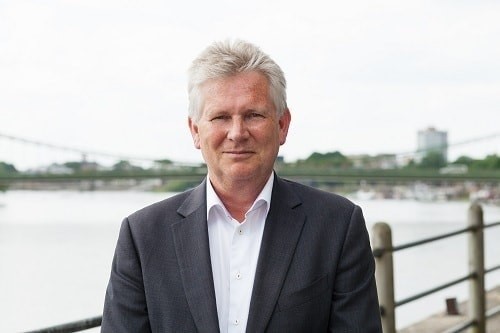Working from Home (or WFH) sometimes feels like just another wedge issue with which to divide us. But it’s a serious one, with potentially far-reaching consequences for our health, productivity and wellbeing. Which is why the study published in the Journal of Occupational Health (and covered recently by the Observer) caught my attention. It also contained something quite refreshing – a balanced view!
Opinion
Work-shy and lonely, or creative and committed?
The report, led by the UK Health Security Agency (UKHSA) with King’s College London, reviewed nearly 2,000 other pieces of research on WFH. See our earlier news story.
So often, what we hear is polemic. Either… “Everyone MUST get back to the office, or we risk becoming a nation of lazy couch potatoes.” Or… “Everyone MUST work wherever we choose, otherwise we will forever be a low-skilled, low wage economy.”
Both cannot be true, can they? There’s some good news from this study, and some less good.
The first is that there can be clear benefits to be had from WFH. People feel both physically and mentally healthier, often report being more productive, and, crucially, can be more creative. However, WFH was not seen to help when it comes to duller, more tedious tasks.
 Mike Robinson: "If we are to make a success of the revolution in our workplaces since the pandemic and reap the benefits of a more flexible approach to work, we must treat people as individuals, listen to their needs, and take time to find out what works for them and their teams."
Mike Robinson: "If we are to make a success of the revolution in our workplaces since the pandemic and reap the benefits of a more flexible approach to work, we must treat people as individuals, listen to their needs, and take time to find out what works for them and their teams."
This report suggests people who WFH eat more fruit, vegetables and dairy than office-workers – particularly women and younger people. However, some who WFH increased their alcohol and tobacco intake, and gained weight.
The study also indicates that, far from leading to lazier, more work-shy habits, people who WFH tend to work longer hours, often using their evenings and weekends. Which, on the flipside, isn’t going to benefit their health or wellbeing.
So, mixed findings on health and productivity, and also for satisfaction, work–life balance and general wellbeing. Indeed, the study describes ‘winners and losers’ from WFH.
The ‘winners’ tend to be people with a more spacious, better equipped home working environment, and some papers even suggest women and people on lower incomes become more, not less, stressed by WFH. However, several papers showed people homeworking part-time as well as those with additional caring responsibilities see a decrease in their stress levels.
Where people ‘lose’ from WFH seems to be through increased feelings of isolation, loneliness and a sense of being excluded, both socially and professionally. This can be linked to employees fearing that WFH may even reduce opportunities for them to advance their careers.
We know it can be harder for people to learn from each other when WFH, but they can have more control over their environment and there are also benefits for those with conditions or disabilities where travel is a barrier. However, studies during the pandemic also showed cases of domestic abuse increased significantly, at a time when WFH for many was the only option. Colleagues and managers can fail to spot signs of change or abuse when working online, and it can be harder to offer support.
The big takeaway for me from this latest study is that whatever the positive or negative impacts of WFH, we should think about it in exactly the same way we should manage people in a physical environment. Not by treating them as one big homogeneous group, or by taking a “one-size-fits-all” approach.
Rather, if we are to make a success of the revolution in our workplaces since the pandemic and reap the benefits of a more flexible approach to work, we must treat people as individuals, listen to their needs, and take time to find out what works for them and their teams. Ultimately, we must give our staff and managers adequate training, support and guidance to help them get the most out of WFH.
Mike Robinson FCA is chief executive of the British Safety Council.
OPINION

Is workplace health safe in 2026?
By Kevin Bampton, BOHS on 10 February 2026
UK Government efforts to boost the economy and employment levels through approaches such as deregulation pose a serious threat to the country’s workplace safety standards and the health of our workforce.

How stress and burnout will shape the workplace in 2026
By Charlotte Maxwell-Davies, Mental Health UK on 09 February 2026
Burnout is rapidly becoming one of the nation’s most significant workplace challenges. It is emerging as a defining issue for organisations and wider society, as the UK contends with a long-term sickness crisis driven by poor mental health. Stress can be motivating in short bursts, but when left unmanaged it contributes to work absences and lost productivity, as well as presenting a clear risk to the health of workers.

A new year, a new approach to risk?
By Mike Robinson FCA, British Safety Council on 02 February 2026
The rulebook is becoming obsolete faster than we can rewrite it. While bureaucracies labour to update yesterday’s regulations, the world of work transforms daily.



